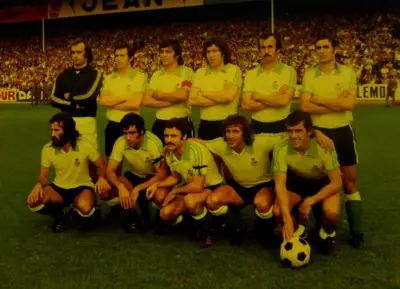
In a seismic shift for Italian football, Juventus have officially appointed Thiago Motta as their new head coach, ushering in a fresh era at the Allianz Stadium. The announcement comes after weeks of speculation following the controversial departure of former manager Massimiliano Allegri.
A New Direction for the Old Lady
The 41-year-old Italian-Brazilian tactician joins Juventus after an impressive spell with Bologna, where he transformed the modest club into surprise Champions League qualifiers. His appointment signals Juventus's commitment to a more progressive, attacking style of football after years of pragmatic approaches under previous management.
Allegri's Explosive Exit
Motta's arrival follows the dramatic dismissal of Massimiliano Allegri, who was sacked in May after a series of explosive incidents. The final straw came during Juventus's Coppa Italia victory over Atalanta, where Allegri's behaviour on the touchline crossed professional boundaries, leading to his immediate removal despite securing the trophy.
The club's official statement cited "certain behaviour during and after the Coppa Italia final deemed incompatible with the values of Juventus" as the primary reason for Allegri's departure, highlighting the zero-tolerance approach to misconduct within the historic institution.
Motta's Football Philosophy
Known for his innovative tactical approach, Motta brings a refreshing philosophy to Turin. His teams typically employ:
- High-intensity pressing systems
- Positional play fluidity
- Youth integration and development
- Attacking football principles
During his time at Bologna, Motta earned plaudits for transforming the club's fortunes while playing attractive, effective football. His ability to develop young talent and implement a clear playing identity made him Juventus's top target in their search for a long-term project leader.
Challenges Ahead
The new manager faces significant challenges as he takes charge of Italy's most successful club:
- Returning to Champions League prominence after recent European disappointments
- Rebuilding squad cohesion following a transitional period
- Implementing new tactical systems with existing personnel
- Managing expectations at a club accustomed to domestic dominance
Juventus finished third in Serie A last season, 17 points behind champions Inter Milan, highlighting the substantial gap Motta must close to restore the Bianconeri to their former glory.
Fan and Pundit Reaction
Early reactions to Motta's appointment have been largely positive, with many seeing it as a bold step toward modernising Juventus's football identity. Former players and pundits have praised the club's willingness to embrace a younger, more progressive coach after years of experienced but conservative appointments.
The Juventus hierarchy clearly believes Motta represents the future, betting on his potential to build a sustainable, successful project rather than opting for short-term solutions. His two-year contract includes an option for a third season, indicating the club's commitment to a longer-term vision.
As pre-season preparations begin, all eyes will be on Turin to see if Thiago Motta can translate his promising managerial career into success at one of football's most demanding institutions.





